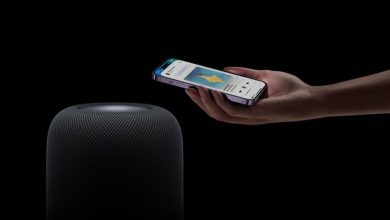What to Know About Investing in Smart Home Technology

The world is one big digital village. Technology isn’t only enriching experiences but also transforming lives. For instance, many homeowners use smart home devices for various functions, such as interconnecting through the internet, allowing users to control functions remotely using a mobile or a networked device. This could be anything from devices that access and control cameras, lights, door locks, thermostats, and even appliances.
Wherever you turn, automation has become the order of the day. This shift towards an automated way of life has redefined how we perform tasks and relate with one another. Here’s why you should invest in smart home technology:
Time Efficiency
The biggest feature of smart home devices is their ability to solve tasks quickly and create more time for rest. By controlling your devices remotely, you can free yourself from the need to do mundane tasks and focus on other things.
For instance, purchasing smart cleaning devices like robot hoovers, speakers, appliances like the Google home hub, switches, lights, locks, washing machines, heaters, and window cleaners can create simple niceties like not getting up from your home workstation and instead scheduling them to complete the tasks for you.
Smart cleaning products with automatic cleaning, such as smart toilets with functions such as self-cleaning, lighting, heating, and massage, also save you the hustle of scrubbing by hand. There’s no doubt that smart home devices are changing the way we spend our time.
Accessibility and convenience
In a Hippo homeowner survey, 46 percent of participants said convenience is a critical benefit of smart home technology. People with disabilities, for instance, can use remote monitoring, automation, and voice control to improve their independence and quality of life, since they can easily control what they need at any time.
Instead of racing home if you’ve forgotten to lock the door or turn the oven off at work, just check your phone. If you’re a pet lover, check on your buddies using pet cameras to ensure they’re okay. The home tech business can make technology more accessible to homeowners.
Security
Many smart homes have sophisticated security features, such as advanced CCTV cameras, detectors, anti-theft devices, fire alarms, and biometric locks. Camera gadgets sync with your doorbell to call the person at your door even when you’re away.
With biometrics, you can set your system to provide certain people access to specific areas. This way, you’ll be alerted whenever an intruder enters your home, or someone attempts to access an area they’re not authorized to. These extra layers of security provide you with peace of mind, knowing that your family, friends, and property are protected.
Energy Saving
According to a new report by the IEA, the number of heat pumps installed in buildings worldwide will rise from 180 million units in 2020 to around 600 million by 2030. This is three times more efficient than traditional fossil boilers. By 2030, building heat pump installation is projected to more than triple from the current 1.5 million monthly to about 5 million.
People use smart home solutions to reduce their electricity bills. Smart home devices like thermostats and appliances can adjust energy demand and inefficiency to optimize power usage. Appliances like thermostats can adjust energy demand and inefficiency to ensure less wasted electricity.
High-efficiency electric heat pumps are driving lower carbon emissions in the construction sector. In the United States, where about 40% of new homes have heat pumps that can meet the demand for cooling and heating, technology accounts for a large share of the heating market.
For instance, according to Bob Vila, asphalt shingles are a common energy-efficient roofing material that’s long-lasting, cheaper to maintain, and lasts 15 to 30 years. Controlling your home with a smart device can significantly reduce energy consumption!
Increased Home Value
The smart home market is growing rapidly. It’s expected to exceed $53 billion by 2022, according to Statistica.com. Many home buyers are looking for network-connected products via WIFI and Bluetooth to control and improve things like entertainment, security, and lighting through smart homes. This increases the house’s market value, making it easy to sell.
According to Realty Biz News, the basement occupies a third or half of the total square footage of most homes. They are often used as an additional living space in the home. In smart homes, they can be transformed into functional and convenient areas for entertainment, security, and lighting.
The convenience of smart home living has increased the popularity of smart homes worldwide! It’s time you jumped on the bandwagon.
The post What to Know About Investing in Smart Home Technology first appeared on BusinessMole.



